中華人民共和國國家通用語言文字法(中英文對照版)
《中華人民共和國國家通用語言文字法》已由中華人民共和國第九屆全國人民代表大會常務委員會第十八次會議於2000年10月31日通過,現予公布,自2001年1月1日起施行。
法律文本
中華人民共和國國家通用語言文字法
Law of the People's Republic of China on the Standard Language
主席令第三十七號
Presidential Decree No. 37
《中華人民共和國國家通用語言文字法》已由中華人民共和國第九屆全國人民代表大會常務委員會第十八次會議於2000年10月31日通過,現予公布,自2001年1月1日起施行。
The Law of the People's Republic of China on the Standard Spoken and Written Chinese Language, which was adopted at the 18th session of the Standing Committee of the 9th National People's Congress on October 31, 2000, is released hereby and shall take effect as of January 1, 2001.
中華人民共和國主席 江澤民
President of the PRC: Jiang Zemin
2000 年10月31日
October 31, 2000
(2000年10月31日第九屆全國人民代表大會常務委員會第十八次會議通過)
(Adopted at the 18th Meeting of the Standing Committee of the Ninth National People's Congress on October 31, 2000)
目 錄
Contents
第一章 總 則
Chapter 1 General Provisions
第二章 國家通用語言文字的使用
Chapter 2 Use of Common Language
第三章 管理和監督
Chapter 3 Administration and Supervision
第四章 附 則
Chapter 4 Supplementary Provisions
第一章 總 則
Chapter 1 General Provisions
第一條 為推動國家通用語言文字的規範化、標準化及其健康發展,使國家通用語言文字在社會生活中更好地發揮作用,促進各民族、各地區經濟文化交流,根據憲法,制定本法。
Article 1 This Law is enacted in accordance with the Constitution with a view to promoting the normalization and standardization of the standard spoken and written Chinese language and its sound development, making it play a better role in public activities, and promoting economic and cultural exchange among all the Chinese nationalities and regions.
第二條 本法所稱的國家通用語言文字是普通話和規範漢字。
Article 2 The standard spoken and written Chinese language mentioned in this Law refers to Putonghua and the standardized Chinese characters.
第三條 國家推廣普通話,推行規範漢字。
Article 3 The State popularizes Putonghua and the standardized Chinese characters.
第四條 公民有學習和使用國家通用語言文字的權利。
Article 4 Citizens shall have the right to learn and use the standard spoken and written State language.
國家為公民學習和使用國家通用語言文字提供條件。
The State provides to citizens conditions for learning and using the standard spoken and written language of the State.
地方各級人民政府及其有關部門應當采取措施,推廣普通話和推行規範漢字。
Local people's governments at various levels and the relevant departments under them shall take measures to popularize Putonghua and the standardized Chinese characters.
第五條 國家通用語言文字的使用應當有利於維護國家主權和民族尊嚴,有利於國家統一和民族團結,有利於社會主義物質文明建設和精神文明建設。
Article 5 The standard spoken and written State language shall be used in such a way as to be conducive to the upholding of State sovereignty and national dignity, to unification of the country and unity of the nationalities, and to socialist material progress and ethical progress.
第六條 國家頒布國家通用語言文字的規範和標準,管理國家通用語言文字的社會應用,支持國家通用語言文字的教學和科學研究,促進國家通用語言文字的規範、豐富和發展。
Article 6 The State promulgates standard norms of the spoken and written State, administers the use of the language in the community, supports the teaching of and scientific research in the language in order to promote its normalization, enrichment and development.
第七條 國家獎勵為國家通用語言文字事業做出突出貢獻的組織和個人。
Article 7 The State rewards the organizations and individuals that have made outstanding contributions in the field the standard spoken and written language of the State.
第八條 各民族都有使用和發展自己的語言文字的自由。
Article 8 All nationalities shall have the freedom to use and develop their own spoken and written languages.
少數民族語言文字的使用依據憲法、民族區域自治法及其他法律的有關規定。
The spoken and written languages of ethnic minorities shall be used in accordance with the relevant provisions of the Constitution, the Law on Ethnic Regional Autonomy and other laws.
第二章 國家通用語言文字的使用
Chapter 2 Use of Common Language
第九條 國家機關以普通話和規範漢字為公務用語用字。法律另有規定的除外。
Article 9 Putonghua and the standardized Chinese characters shall be used by State organs as the official language. Unless otherwise required by law.
第十條 學校及其他教育機構以普通話和規範漢字為基本的教育教學用語用字。法律另有規定的除外。
Article 10 Putonghua and the standardized Chinese characters shall be used as the basic language in education and teaching in schools and other institutions of education. Unless otherwise required by law.
學校及其他教育機構通過漢語文課程教授普通話和規範漢字。使用的漢語文教材,應當符合國家通用語言文字的規範和標準。
Mandarin and standardized Chinese characters are taught in schools and other educational institutions through Chinese language courses. The Chinese textbooks used shall be in conformity with the norms of the standard spoken and written Chinese language.
第十一條 漢語文出版物應當符合國家通用語言文字的規範和標準。
Article 11 Publications in Chinese shall be in conformity with the norms of the standard spoken and written Chinese language.
漢語文出版物中需要使用外國語言文字的,應當用國家通用語言文字作必要的注釋。
Where foreign languages need to be used in publications in Chinese, necessary explanatory notes in standard Chinese shall be applied.
第十二條 廣播電臺、電視臺以普通話為基本的播音用語。
Article 12 Putonghua shall be used by the broadcasting and television stations as the basic broadcasting language.
需要使用外國語言為播音用語的,須經國務院廣播電視部門批準。
Where foreign languages need to be used as the broadcasting languages, the matter shall be subject to approval by the broadcasting and television administration under the State Council.
第十三條 公共服務行業以規範漢字為基本的服務用字。因公共服務需要,招牌、廣告、告示、標志牌等使用外國文字並同時使用中文的,應當使用規範漢字。
Article 13 The standardized Chinese characters shall be used as the basic characters in the service trade. Where both a foreign language and the Chinese language are used in signboards, advertisements, bulletins, signs, etc., as is needed by the trade, the standardized Chinese characters shall be used as far as the Chinese language is concerned.
提倡公共服務行業以普通話為服務用語。
The public service industry is encouraged to use Putonghua as its service language.
第十四條 下列情形,應當以國家通用語言文字為基本的用語用字:
Article 14 The standard spoken and written State language shall be used as the basic spoken and written language in the following circumstances:
(一)廣播、電影、電視用語用字;
1. written language for radio, film and television;
(二)公共場所的設施用字;
(II) written language for the facilities in public places;
(三)招牌、廣告用字;
3. written language in signboards and advertisements;
(四)企業事業組織名稱;
(IV) names of enterprises and public institutions;
(五)在境內銷售的商品的包裝、說明。
(V) packing and specifications of commodities sold within the territory.
第十五條 信息處理和信息技術產品中使用的國家通用語言文字應當符合國家的規範和標準。
Article 15 The standard spoken and written Chinese language used in information processing and information technology products shall be in conformity with the norms of the State.
第十六條 本章有關規定中,有下列情形的,可以使用方言:
Article 16 Where the relevant provisions of this Chapter are concerned, local dialects may be used under the following circumstances:
(一)國家機關的工作人員執行公務時確需使用的;
1. when State functionaries really need to use them in the performance of official duties;
(二)經國務院廣播電視部門或省級廣播電視部門批準的播音用語;
(II) The broadcasting languages approved by the department of radio and television of the State Council or the provincial department of radio and television;
(三)戲曲、影視等藝術形式中需要使用的;
3. where they are needed in traditional operas, films and television and other forms of art;
(四)出版、教學、研究中確需使用的。
(IV) where their use is really required in the publishing, teaching and research.
第十七條 本章有關規定中,有下列情形的,可以保留或使用繁體字、異體字:
Article 17 Where by the relevant provisions of this Chapter are concerned, the original complex or the variant forms of Chinese characters may be retained or used under the following circumstances:
(一)文物古跡;
1. Cultural relics and historic sites;
(二)姓氏中的異體字;
2. the variant forms used in surnames;
(三)書法、篆刻等藝術作品;
(III) in works of art such as calligraphy and seal cutting;
(四)題詞和招牌的手書字;
(IV) handwritten inscriptions and signboards;
(五)出版、教學、研究中需要使用的;
(V) where their use is required in the publishing, teaching and research; and
(六)經國務院有關部門批準的特殊情況。
(VI) special circumstances approved by the relevant departments under the State Council.
第十八條 國家通用語言文字以《漢語拼音方案》作為拼寫和注音工具。
Article 18 The "Scheme for the Chinese Phonetic Alphabet" shall be used as the tool of transliteration and phonetic notation for the standard spoken and written Chinese language.
《漢語拼音方案》是中國人名、地名和中文文獻羅馬字母拼寫法的統一規範,並用於漢字不便或不能使用的領域。
The "Scheme for the Chinese Phonetic Alphabet" is the unified norm of the Roman letters for transliterating the names of Chinese people and places as well as Chinese documents and is used in the realms where it is inconvenient to use the Chinese characters or where the Chinese characters cannot be used.
初等教育應當進行漢語拼音教學。
Chinese phonetic alphabets shall be used in primary education.
第十九條 凡以普通話作為工作語言的崗位,其工作人員應當具備說普通話的能力。
Article 19 All staff members who need to use Putonghua as their working language shall have the ability to speak Putonghua.
以普通話作為工作語言的播音員、節目主持人和影視話劇演員、教師、國家機關工作人員的普通話水平,應當分別達到國家規定的等級標準;對尚未達到國家規定的普通話等級標準的,分別情況進行培訓。
The Putonghua level of those who use Putonghua as their working language, such as broadcasters, program hosts and hostesses, actors and actresses of films, TV series and plays, teachers and State functionaries shall reach the respective standards set by the State; those who have not yet reached such standards shall receive different training, as the case may be.
第二十條 對外漢語教學應當教授普通話和規範漢字。
Article 20 Putonghua and the standardized Chinese characters shall be taught in classes for foreigners who are learning Chinese.
第三章 管理和監督
Chapter 3 Administration and Supervision
第二十一條 國家通用語言文字工作由國務院語言文字工作部門負責規劃指導、管理監督。
Article 21 The department in charge of the work related to spoken and written language under the State Council shall be responsible for planning, guiding, administering and supervising the work related to the standard spoken and written language of the State.
國務院有關部門管理本系統的國家通用語言文字的使用。
Relevant departments under the State Council shall administer the use of the standard spoken and written State language in their own departments.
第二十二條 地方語言文字工作部門和其他有關部門,管理和監督本行政區域內的國家通用語言文字的使用。
Article 22 Local departments in charge of the work related to spoken and written language and other departments concerned shall administer and supervise the use of the standard spoken and written language in their own administrative areas.
第二十三條 縣級以上各級人民政府工商行政管理部門依法對企業名稱、商品名稱以及廣告的用語用字進行管理和監督。
Article 23 The administrative departments for industry and commerce under the local people's governments at or above the county level shall administer and supervise the use of spoken and written language in the names of enterprises and commodities as well as in advertisements.
第二十四條 國務院語言文字工作部門頒布普通話水平測試等級標準。
Article 24 The department in charge of the work related to spoken and written language under the State Council shall issue standards for the test of Putonghua at different grades.
第二十五條 外國人名、地名等專有名詞和科學技術術語譯成國家通用語言文字,由國務院語言文字工作部門或者其他有關部門組織審定。
Article 25 The department in charge of the work related to spoken and written language under the State Council or other departments concerned shall make arrangements for the examination of the translation of the proper nouns like the names of foreigners and foreign places and the scientific and technical terms into the standard spoken and written language of the State.
第二十六條 違反本法第二章有關規定,不按照國家通用語言文字的規範和標準使用語言文字的,公民可以提出批評和建議。
Article 26 Any citizen may make criticism and put forward suggestions where the use of spoken and written language is at variance with the norms of the standard spoken and written State language and is in violation of the relevant provisions in Chapter II of this Law.
本法第十九條第二款規定的人員用語違反本法第二章有關規定的,有關單位應當對直接責任人員進行批評教育;拒不改正的,由有關單位作出處理。
Where persons mentioned in the second paragraph of Article 19 of this Law use the language in violation of the relevant provisions of Chapter II of this Law, the units concerned shall, by way of admonishing, criticize the persons who are directly responsible; anyone who refuses to put it right shall be handled by the units concerned.
城市公共場所的設施和招牌、廣告用字違反本法第二章有關規定的,由有關行政管理部門責令改正;拒不改正的,予以警告,並督促其限期改正。
Where the characters used in the facilities and signboards in public places of cities and in advertisements are in violation of the relevant provisions of Chapter II of this Law, the administrative departments concerned shall give orders for them to be corrected; anyone who refuses correct them shall be given a disciplinary warning and be urged to put them right within a time limit.
第二十七條 違反本法規定,幹涉他人學習和使用國家通用語言文字的,由有關行政管理部門責令限期改正,並予以警告。
Article 27 Anyone who, in violation of this Law, interferes with other persons' learning and using of the standard spoken and written language of the State shall be ordered by relevant administrative departments to put it right within a time limit and be given a disciplinary warning.
第四章 附 則
Chapter 4 Supplementary Provisions
第二十八條 本法自2001年1月1日起施行。
Article 28 This Law shall go into effect as of January 1, 2001.
©本站文章、圖片等內容知識產權歸作者所有。本站所有內容均來源於網絡,僅供學習交流使用!
轉載請注明出處: 法總荟 » 中華人民共和國國家通用語言文字法(中英文對照版)
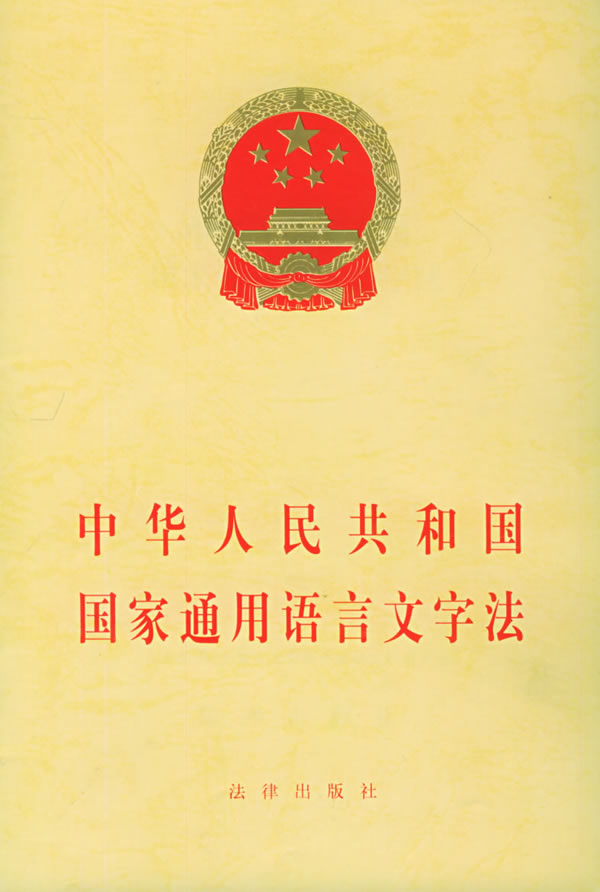
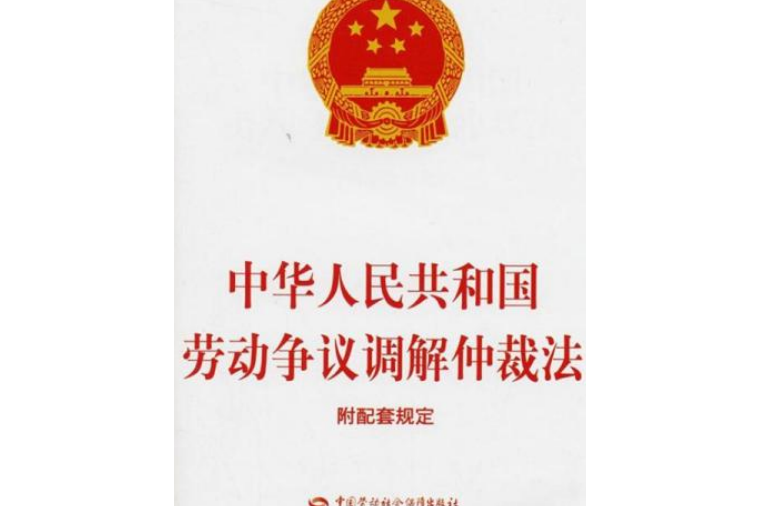
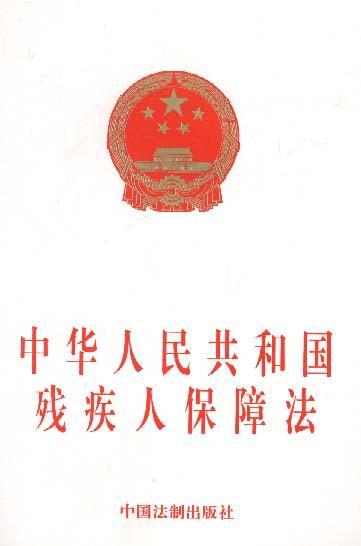
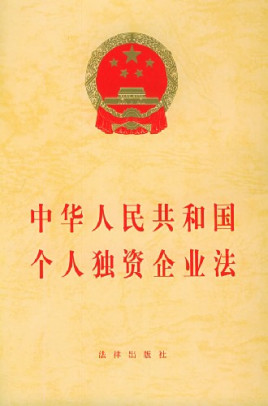
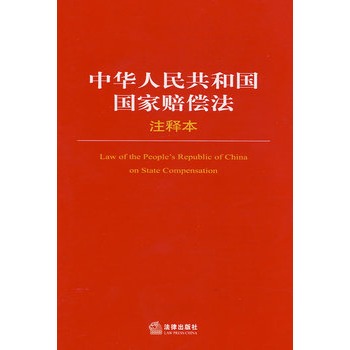
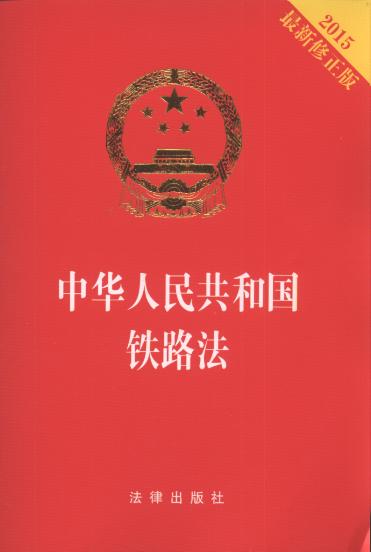
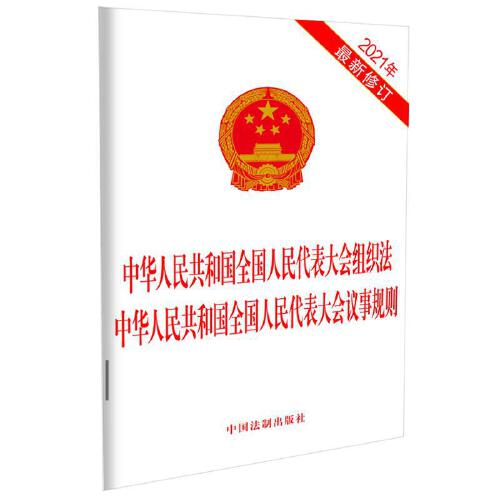


發表評論 取消回複